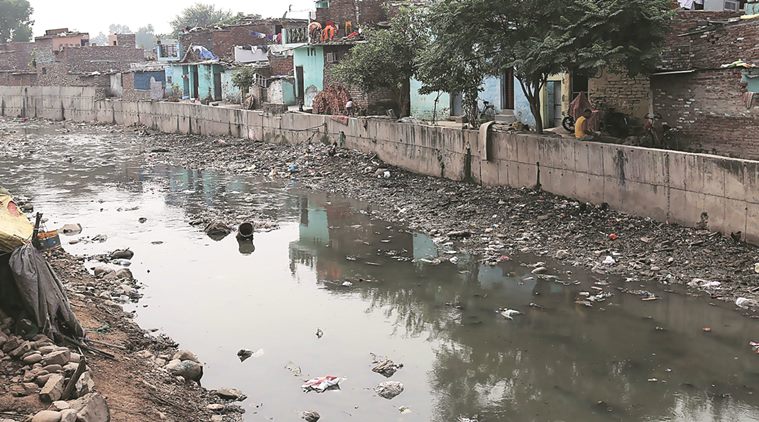Stay updated with the latest - Click here to follow us on Instagram
Maximum cases from congested areas in Panchkula
At present, as many as 193 cases of malaria, 83 cases of dengue and seven cases of chikungunya have been reported in Panchkula.
 Mosquito-prone area at Rajiv Colony in Panchkula. Express Photo by Jaipal Singh
Mosquito-prone area at Rajiv Colony in Panchkula. Express Photo by Jaipal Singh
The maximum number of cases of vector-borne diseases, be it malaria or dengue, have been reported in congested hutments in riverbed and colonies in urban Panchkula which has a population of 5.63 lakh, mostly migrants.
“Rajiv Colony, Indira Colony, Abheypur, Buddanpur, Ghaggar huts, Pinjore area, Kaushalaya huts are the risk areas and have recorded maximum cases. It is largely due to water problem, as the water supply is inadequate and residents end up storing water in vessels for a long time. There is more prevalence of malaria than dengue in these areas,” says Civil Surgeon V K Bansal.
At present, as many as 193 cases of malaria, 83 cases of dengue and seven cases of chikungunya have been reported in Panchkula. The health department has not confirmed any death due to these vector-borne diseases in the district this year.
With a spurt in cases from colonies and hutments, the health department has also launched a special drive for anti-larvae spray in these areas. Fumigation was started in all the residential areas in the first week of September. However, there are constraints, highlight the officials.
“The population in these areas mainly consists of labourers and daily wagers, who leave for work early in the day and return late at night. When we visit the houses of patients post-diagnosis, they are not present. There are also language barriers, when we try to make them aware of preventive steps,” says malaria inspector Jasbir Singh.
Deputy Commissioner Garima Mittal stresses the need to provide regular supply of clean water to residents of the colonies, especially Old Panchkula, where residents have made complaints regarding short supply of water. “There should not be any leakage in supply lines,” she has told officials.
Dengue cases are prevalent in urban areas, where mosquitoes breed in water vessels, coolers and openly dumped tyres. “The aedes mosquito breeds in stagnating clean water, which is seen more in urban areas. If people do not let water stagnate anywhere, then it can be controlled. We have received very few cases of dengue from rural areas this year,” says the health official.
The Panchkula Municipal Corporation has also taken anti-larvae measures in parks. “Apart from fumigation and other anti-larvae measures, putting oil drops in stagnated water helps in killing larvae. We have arranged oil and our workers are putting it in parks and other areas where water is seen stagnated. We have received co-operation from as many as 210 park societies for this step,” says MC executive officer O P Sihag.







